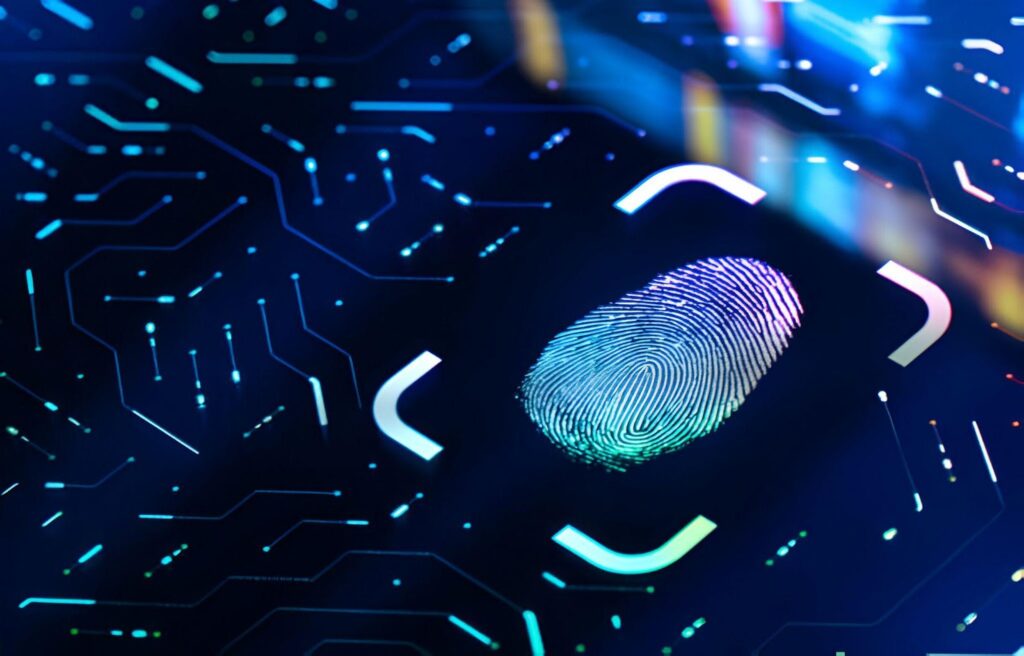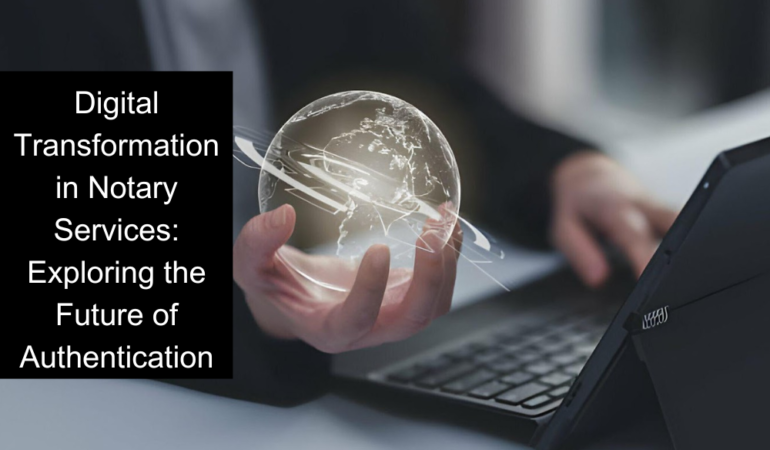The world is constantly changing with new technology, and this affects all industries, including notary services. Instead of the old-fashioned way of verifying documents, digital technology is making things faster, easier, and more secure. This article will tell you about how digital transformation has helped notary services and what the future holds for verifying documents in the digital age.
What is the Role of Digital Transformation in Notary Services?
A digital transformation in notary services involves the adoption of technology to streamline and enhance the traditional process of notarization.
There are several key components to this transformation:
1. Electronic Signatures
Electronic signatures have become a crucial part of the process of notarizing documents. They make it possible to sign documents electronically without the need for physical presence. Digital transformation in notary services has led to streamlined and efficient processes for corporate tax preparation. This not only saves time, but also ensures that the signatures are authentic and secure by using advanced cryptographic techniques. As a result, professional notary services have adapted to include electronic signatures as a safe and secure way to verify documents.
2. Remote Online Notarization (RON)
RON, which stands for Remote Online Notarization, is a process that allows people to get their documents notarized without physically visiting a notary office. With the help of video conferencing technology and secure online platforms, individuals can complete the notarization process from the comfort of their own homes. Common Types Of Fraud related to Digital Transformation in Notary Services include identity theft, document forgery, and unauthorized access to electronic records. This method of notarization offers increased accessibility and convenience, especially for those who face mobility or geographical constraints. Despite the remote nature of the process, RON maintains a high level of security and compliance with legal standards, ensuring that the notarized documents are legally valid and binding.
3. Blockchain Technology
Blockchain is a new way of storing information that makes it very difficult for anyone to change or cheat. This technology can be very useful for people who need to have important documents verified as real and trustworthy. By using blockchain, people can be sure that their documents are real and have not been tampered with in any way. Many professional notary services are looking into using blockchain to give their clients even more confidence that their documents are real and trustworthy. Implementing legal tips to stay compliant with regulations while utilizing blockchain technology can further bolster trust and confidence in document authenticity and integrity.
Understanding Authentication in the Digital Age

Verifying the identity of people and documents is a big deal for notary services and it’s called authentication. Nowadays, with everything being digital, authentication methods have become more advanced to keep up with electronic transactions and remote interactions. Some important things to consider about authentication in the digital age are:
Biometric Authentication
Biometric technologies like facial recognition, fingerprint scanning, and voice recognition are great ways to confirm someone’s identity. These systems use unique biological features to strengthen security and lower the chances of identity theft or impersonation.
Multi-factor Authentication (MFA)
MFA means using different ways to prove who you are, like passwords, fingerprints, or temporary codes. This makes things safer because you have to show more than one thing to prove it’s really you before you can get to stuff that needs to be kept private.
Exploring the Future of Authentication
Authentication services for notaries will continue to be characterized by innovation and technological advancement in the future. Here are some of the emerging trends and developments shaping authentication’s future:
Artificial Intelligence (AI) and Machine Learning
AI-powered authentication solutions are advanced security tools that help protect digital information from potential threats. These tools use machine learning algorithms to analyze user behavior and interactions, allowing them to detect any unusual activity and identify security risks in real-time. By verifying user identities through biometric data, device information, and login history, these solutions help prevent phishing attacks, identity theft, and other malicious activities. As AI technology continues to evolve, these security measures will only become more sophisticated, providing organizations with an extra layer of protection to keep their valuable digital assets safe.
Decentralized Identity Solutions
Decentralized identity solutions are new ways of managing digital identities that use blockchain technology. They give people more control over their personal information and identities online. Unlike traditional systems, which rely on a central authority to verify identities, decentralized identity solutions are spread out and work on a peer-to-peer basis. This means no one person or organization has complete control over your identity, which can make it harder for someone to steal or misuse your personal information. Securing your first professional role in the notary services industry requires a deep understanding of emerging technologies and the digital transformation that is reshaping the field. These solutions also use special technology to make sure that any identity-related transactions are recorded in a secure and unchangeable way, which helps keep your identity safe.
Benefits and Challenges of Digital Transformation in Notary Services

The transition to digital notary services offers numerous benefits, including:
- Increased Efficiency: Notarization is simplified by digital authentication, which reduces the time and effort involved in the process.
- Enhanced Security: Advanced encryption techniques and blockchain technology ensure the security and integrity of electronic documents, minimizing the risk of fraud.
- Cost Savings: Digital notary services eliminate the need for paper-based processes, saving costs associated with printing, storage, and transportation of documents.
- Convenience: Remote authentication enables individuals to notarize documents from anywhere, at any time, eliminating the need for physical presence.
However, digital transformation also poses certain challenges, including:
- Regulatory Compliance: Notary services must adhere to regulatory requirements governing electronic signatures and authentication methods to ensure legal validity.
- Cybersecurity Risks: The digitalization of notary services introduces new cybersecurity threats, such as data breaches and identity theft, which must be effectively managed.
- Technological Adoption: Some individuals may be hesitant to adopt digital authentication methods due to unfamiliarity with technology or concerns about security and privacy.
Conclusion
Digital transformation is changing how notary services work, especially in terms of making sure documents are authentic. By using advanced technologies like electronic signatures, blockchain, and biometric authentication, notaries can make their services quicker, safer, and easier for everyone to use. Professional notary services adopt these innovations first, ensuring that documents are authenticated securely and reliably. As we figure out how to use technology in the best way, it’s important for different groups, like regulators and technology companies, to work together. Moving towards the future of authenticating documents will make things better and give people and businesses the ability to confidently deal with the complexities of the digital world.

